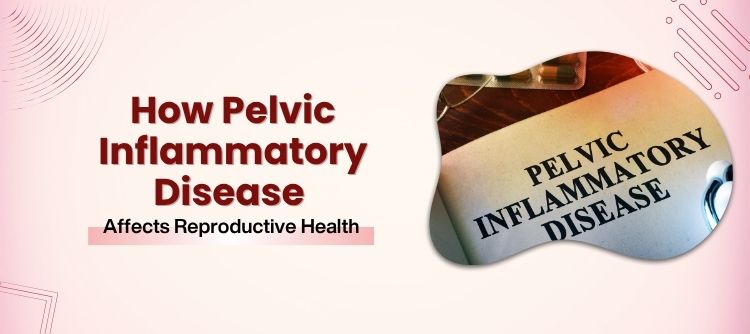How Pelvic Inflammatory Disease Affects Reproductive Health

Pelvic Inflammatory Disease (PID) is a condition that many women are unaware of until it significantly impacts their reproductive health. It affects the uterus, fallopian tubes, and ovaries, often resulting from the spread of bacteria from the vagina or cervix into the upper reproductive tract. When not treated promptly, PID can lead to long-term complications like persistent pelvic pain and reduced fertility. At our IVF center in Jaipur, we often assist women who are struggling with fertility issues caused by complications from untreated or recurring PID.
What Is Pelvic Inflammatory Disease?
Pelvic Inflammatory Disease is an infection that affects the female reproductive organs, usually beginning when bacteria from the vagina travel upward into the uterus, fallopian tubes, or ovaries. While the infection might begin silently, the long-term damage it can cause is often irreversible.
PID is not a single disease but a group of inflammatory conditions that impact the upper female reproductive tract. The inflammation leads to scarring, abscess formation, and, in severe cases, permanent damage to the reproductive organs. This damage can have a lasting impact on a woman’s ability to conceive naturally.
Symptoms of PID
One of the most concerning aspects of PID is that many women do not experience any noticeable symptoms in the early stages. When symptoms do appear, they may include:
- Lower abdominal or pelvic pain
- Unusual or foul-smelling vaginal discharge
- Pain during intercourse
- Irregular menstrual bleeding
- Fever and chills
- Painful urination
In many cases, women only learn they have PID when they experience difficulties getting pregnant or suffer from chronic pelvic pain. At this point, considerable damage may have already taken place.
How PID Affects Fertility
The link between PID and infertility is well-established. The infection triggers inflammation in the reproductive organs, often leading to the development of scar tissue and adhesions.This damage can result in:
- Blocked fallopian tubes: When the fallopian tubes are blocked, the egg is unable to move from the ovary to the uterus, preventing natural conception.
- Ectopic pregnancy: If a fertilized egg implants in a damaged fallopian tube instead of the uterus, it can cause a life-threatening condition known as an ectopic pregnancy.
- Ovarian and uterine damage: Prolonged infection can also lead to ovarian abscesses and a reduced ability of the uterus to support a pregnancy.
- Recurrent infections: Once a woman has had PID, she is more likely to develop it again, which increases the risk of cumulative damage and infertility.
Studies have shown that up to 1 in 8 women with a history of PID will face difficulties conceiving. The risk increases with repeated infections.
Diagnosis and Early Intervention
Early diagnosis and treatment are key to minimizing the damage caused by PID. Diagnosis typically involves:
- A pelvic exam is performed to detect tenderness or unusual vaginal discharge.
- Swabs from the cervix or vagina to test for infections
- Ultrasound imaging to assess for abscesses or fluid build-up
- Blood tests to check for signs of infection
Women who are diagnosed early and receive appropriate treatment can often avoid long-term complications. However, once the fallopian tubes are damaged or scarred, the damage is usually permanent.
Managing PID and Protecting Reproductive Health
Women can take several proactive steps to lower their risk of PID and safeguard their reproductive health:
- Use protection during sex and maintain a limited number of sexual partners to reduce the risk of infection.
- Avoid douching, which disrupts the natural balance of bacteria in the vagina.
- Schedule routine screenings for sexually transmitted infections, particularly if you are sexually active.
- Seek immediate medical attention for unusual vaginal symptoms or pelvic pain.
- Attend regular gynecological check-ups, especially if you have a history of PID or other reproductive health concerns.
Women who have already experienced PID should discuss their reproductive goals with a healthcare provider. Early planning and evaluation can help guide the next steps and identify potential challenges before they become more serious.
Conclusion
Pelvic Inflammatory Disease is more than just a short-term infection—it’s a condition that can quietly cause lifelong damage to a woman’s reproductive system. Understanding its symptoms, causes, and impact on fertility is essential for early detection and prevention. If you’ve experienced PID or suspect you may have it, don’t wait to seek help. Early diagnosis and care can protect your ability to conceive. And if fertility challenges do arise, advanced fertility treatment options are available to help you start or grow your family with confidence.
